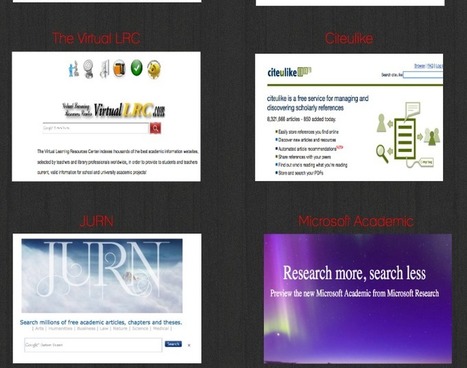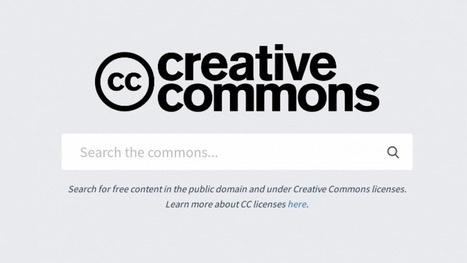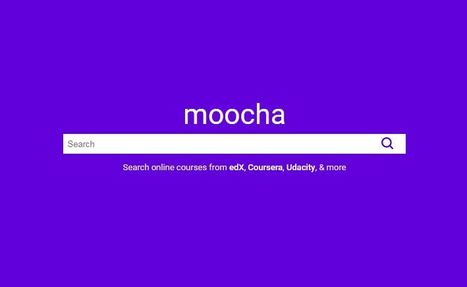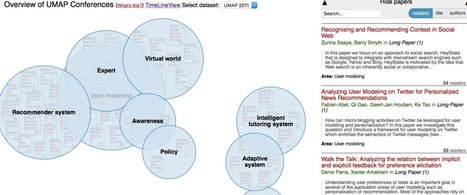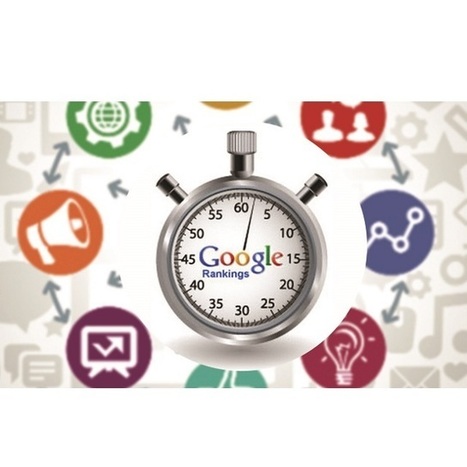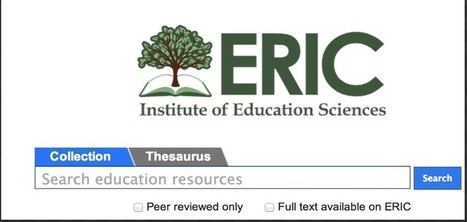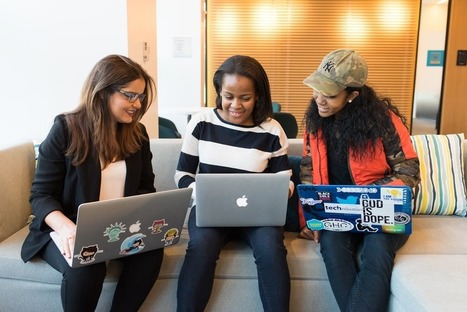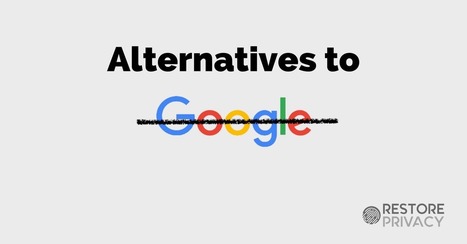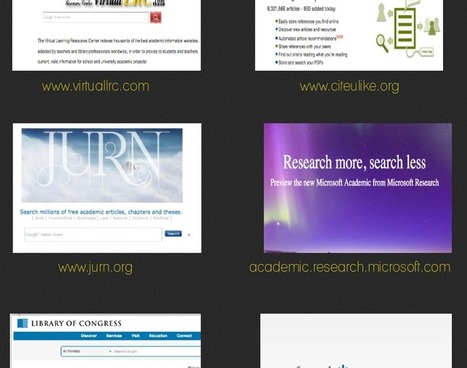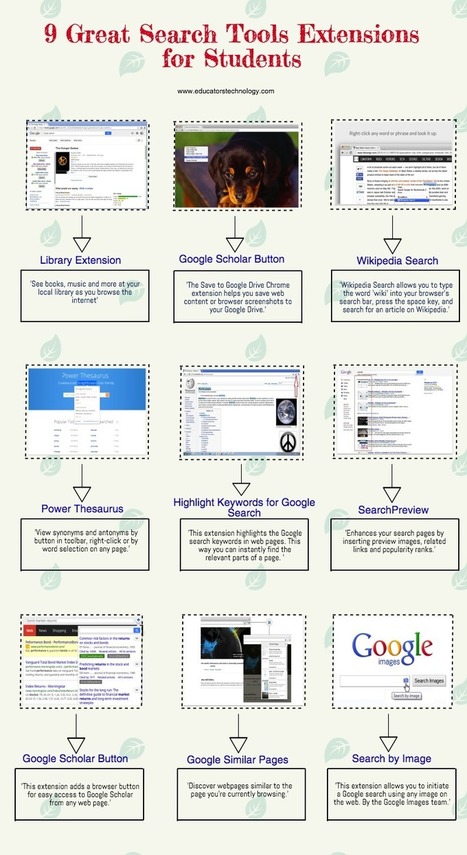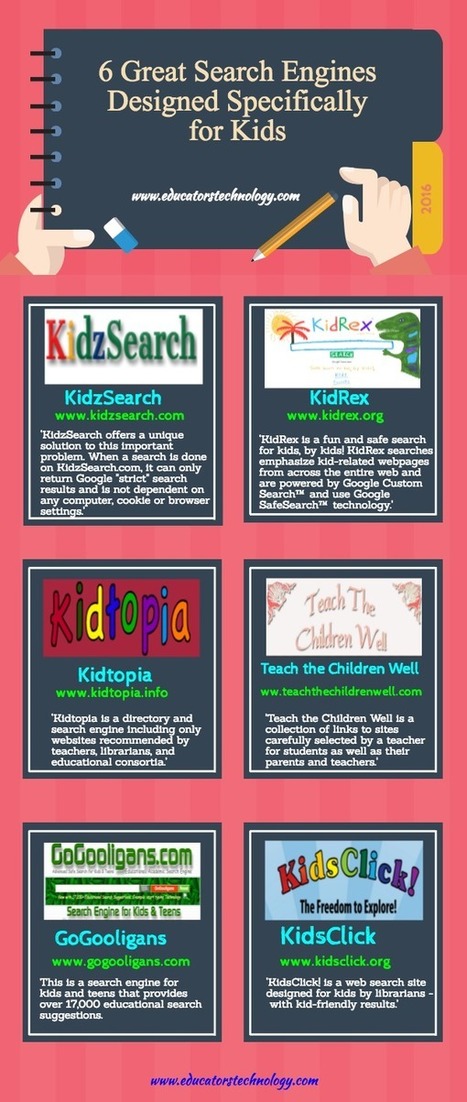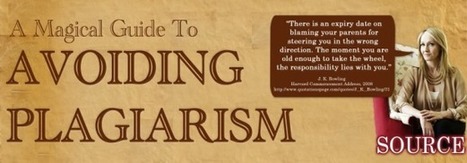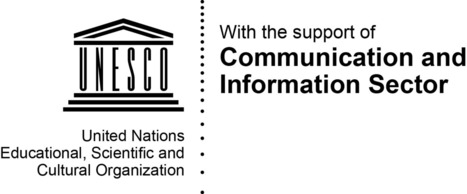 Your new post is loading...
 Your new post is loading...
Below is a collection of some handy academic search engines teachers and educators can use to search for and find a wide variety of academic articles, journals, documents and theses. Some of these search engines are subject focused and others are generic.
Via Elizabeth E Charles
Heads up: Creative Commons has officially launched CC Search, a search engine that indexes over 300 million images from 19 image collections, "including cultural works from museums (the Metropolitan Museum of Art, Cleveland Museum of Art), graphic designs and art works (Behance, DeviantArt), photos from Flickr, and an initial set of CC0 3D designs from Thingiverse." All of the indexed images are in the public domain and released under Creative Commons licenses--meaning the images are generally free to use in a non-commercial setting. Head here to start searching.
Via Elizabeth E Charles
Dan Russell and Mario Callegaro write: "Search engines are amazingly powerful tools that have transformed the way we think of research, but they can hurt more than help when we lack the skills to use them appropriately and evaluate what they tell us. "
Via Mary Reilley Clark, Elizabeth E Charles
Search for MOOCs and online courses from platforms including Coursera, edX, MIT OpenCoursWware, Udacity, and Futurelearn.
Via Elizabeth E Charles
Looking for a single search?
Here are just a few of the phrases that we hear every day from people like you who want to understand how Explorit Everywhere! will help:
Via Elizabeth E Charles
Scientists and journalists share similar skills and challenges in digital storytelling, especially when it comes to researching an unfamiliar field. Current tools for searching information from the academic world in particular can be difficult and time-consuming. PubMed and Google Scholar, for example, present searches linearly—a long list of things to sift through.
Via Andreas Christodoulou, Mark E. Deschaine, PhD, Elizabeth E Charles, Dean J. Fusto
Search engine results pages (SERPs), much to the irritation of search marketers who count on them, change constantly. Google is constantly making tiny, hardly-noticeable tweaks to the familiar layout of its signature creation, leading to gradual changes in user behavior and disrupting the expectations of optimizers who were counting on [...]
Via Phil Bradley, Elizabeth E Charles
15 hours of free training in just 5 minutes a day. 180 free computer technology tips that will teach you basic computer skills in just 5 minutes a day
Via Elizabeth E Charles
google power search The trouble with something so familiar as the Google search engine is the iceberg principle. You only use the bit you can see, the obvious 10% of the capacity. Once you confine yourself like that, then the results you’ll be getting will be similarly restricted. If you know what you’re doing though, you’ll find what you really need, rather than something that’s been better search-optimised, and you’ll find it quicker.
Via Elizabeth E Charles
The Google alternatives workshop is a regular on the UKeiG training calendar. We don’t guarantee that you will be weaned off Google by the end of the day but we do try and highlight other search engines and tools that might be better for certain types of information. At the end of the workshops the participants pull together a list of Top Tips. These could be a tool or website they have just discovered, a search command, or a general approach or strategy to searching. The tips below are a combined list from two workshops attended by people from all sectors and types of company, and even included a couple of self-employed researchers. The sessions covered both general search tools and specialist services, and the Top Tips is an interesting mix of strategy and specific sites.
Via Elizabeth E Charles
Writing a research paper? Google has a lot of information indexed, but it's nothing compared to what else is out there.
Via Elizabeth E Charles
While Google remains a robust search engine with great capabilities and potential for us in education and academia, sometimes it seems more plausible to use specific and topic-based search engines to look for better search results.
Via Becky Roehrs, Rui Guimarães Lima, Miloš Bajčetić
|
Welcome, BERT Your internet searches are making Google one smart cookie, thanks to artificial intelligence. For quite some time, algorithms have quietly worked their way through search engines, analyzing, and ranking the keywords. This newer search-ranking system is the Bidirectional Encoder Representations from Transformers (BERT). Bert arrived in the search room in October 2019. BERT is the artificial intelligence algorithm designed to understand subtleties in language. The program’s algorithms can discriminate between the use of prepositions like “to” and correctly determine relationships between words and phrases. It reads nuances.
Via Elizabeth E Charles
It’s been fun Google, but it’s time to say goodbye. Have you noticed? Google’s entire business model is based on you surrendering to their corporate surveillance. That’s it. All they do is repackage mass corporate surveillance into convenient, free, trendy applications that suck up all your data. Your private data helps Google dominate the online advertising market. You are the product. The other key issue to consider here is that Google is tracking and recording your activity in order to build a user profile, which can be used for various purposes.
Via Elizabeth E Charles
When it comes to searching for niche-specific content Google search engine is not the best option out there. Although Google can be a good starting point from which you can delve deeper into the content area you are searching but you can save much more time by using content-specific search engines. In today’s post, we are sharing with you some examples of academic search engines student researchers and teachers can use to search for, find and access scholarly content. We are only featuring the most popular titles, but you can always find other options to add to the list.
Via Elizabeth E Charles, Miloš Bajčetić
Most people don't want three dozen search engines, especially people who are not trained internet users. Most people want a single search engine that delivers three key features:
Relevant results (results you are actually interested in)
Uncluttered, easy to read interface
Helpful options to broaden or tighten a search
With this criteria, several of our reader favorites come to mind. These search sites should meet 99 percent of the searching needs of a regular everyday user.
Library Literacy resources - Some lessons Library Lessons - Annotated Bibliographies Creating a bibliography and research tips - Creating a standard bibliography and research tips Get more from Goo...
Via Elizabeth E Charles
Google Scholar is one of the most useful but often overlooked research and academic tools available to students and educators online.
Via Elizabeth E Charles
With all of the information out there, it can be difficult for students to locate different types of sources! In this three minute video, your students will understand: What a library catalog isThe organization of fiction and nonfiction materialsThe difference between search engines and databases
Via Elizabeth E Charles
ROAD provides a free access to a subset of the ISSN Register (1,7 millions of bibliographic records, available on subscription, see http://www.issn.org/en/understanding-the-issn/the-issn-international-register/). This subset comprises bibliographic records which describe scholarly resources in Open Access which have been assigned an ISSN by the ISSN Network : journals, conference proceedings and academic repositories. ROAD records are also downloadable as a MARC XML dump and will be available as RDF triples in 2014.
Via Elizabeth E Charles
Flickr is almost certainly the best online photo management and sharing application in the world. Show off your favorite photos and videos to the world, securely and privately show content to your friends and family, or blog the photos and videos you take with a cameraphone.
Via Elizabeth E Charles
|



 Your new post is loading...
Your new post is loading...

